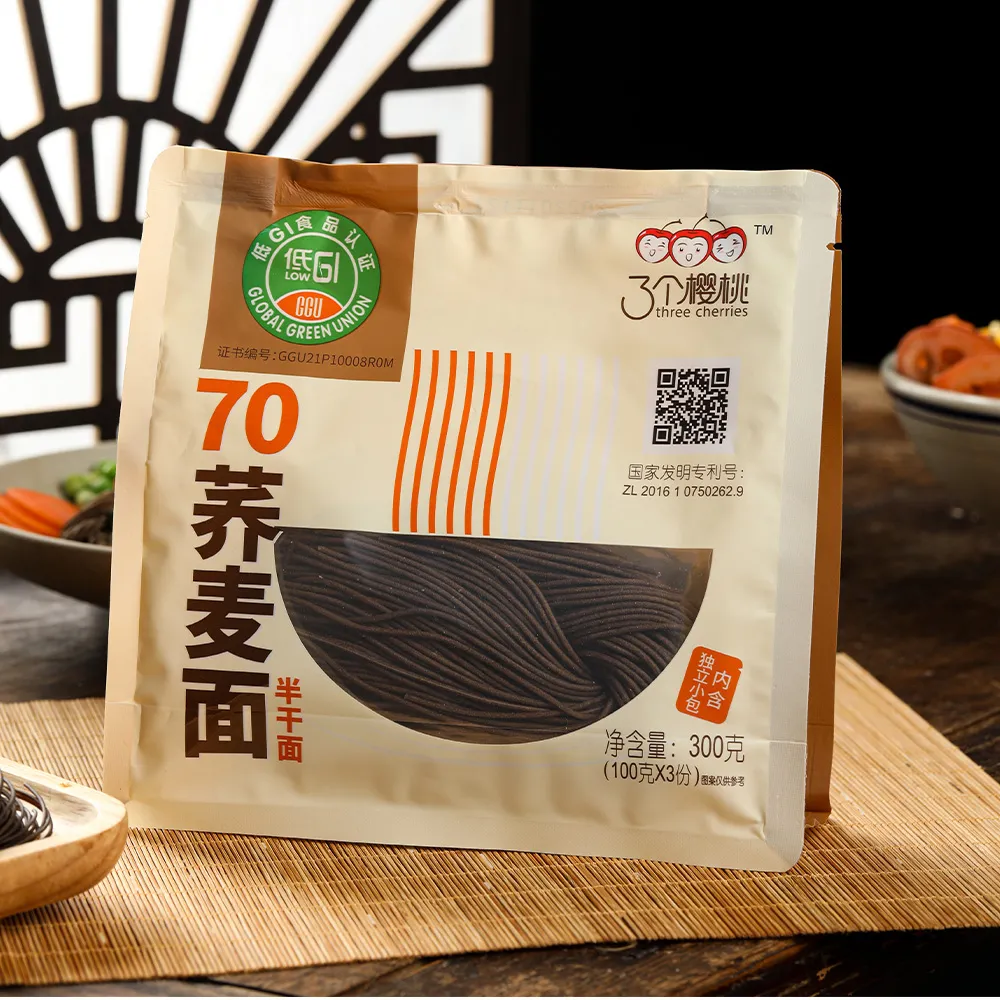Are Soba Noodles a Healthy Choice for People with Diabetes?
Are Soba Noodles Good for Diabetics?
When it comes to dietary choices for managing diabetes, selecting the right kind of carbohydrates is crucial. Among many options available, soba noodles—a popular Japanese dish made from buckwheat—have gained attention for their potential benefits for those managing blood sugar levels. This article explores whether soba noodles are a suitable choice for diabetics, focusing on their nutritional content, glycemic index, and health benefits.
What Are Soba Noodles?
Soba noodles are thin noodles made primarily from buckwheat flour, though some variations may mix in wheat flour. Buckwheat itself is a nutrient-rich pseudocereal, often classified with grains due to its culinary use and similar texture to wheat. Soba noodles are not just a staple in Japanese cuisine; they also have a unique flavor profile, which makes them a versatile ingredient in various dishes.
Nutritional Profile of Soba Noodles
Assessing the nutritional value of soba noodles reveals why they might be a beneficial option for individuals with diabetes. A typical serving of cooked soba noodles (about 1 cup or 150 grams) contains
- Approximately 113 calories - 24 grams of carbohydrates - 6 grams of protein - 1.5 grams of fat - 3 grams of fiber
The fiber content in soba noodles is particularly noteworthy. Dietary fiber plays a crucial role in managing blood sugar levels as it slows down the digestion process and helps to prevent spikes in glucose after meals. Additionally, soba noodles are relatively low in calories, making them a healthy choice for those monitoring their weight.
Low Glycemic Index
The glycemic index (GI) is a measurement that ranks foods based on their impact on blood sugar levels. Foods with a higher GI are more likely to cause sharp spikes in blood glucose, which can be particularly concerning for diabetics. In contrast, foods with a lower GI are generally digested more slowly, leading to more stable blood sugar levels.
Soba noodles have a moderate GI rating, typically around 54. This places them in the acceptable range for carbohydrate sources for diabetics, as foods with a GI score of 55 or less are considered low to moderate. Consuming soba noodles instead of traditional pasta may be a strategic choice for those seeking to maintain better blood sugar control.
soba noodles good for diabetics

Rich in Antioxidants and Nutrients
In addition to their low GI and fiber content, soba noodles boast a variety of health-promoting nutrients. Buckwheat is rich in antioxidants such as rutin and quercetin, which have been shown to have anti-inflammatory and heart-protective effects. For individuals with diabetes, managing cardiovascular health is vital, as diabetes increases the risk of heart disease.
Buckwheat is also an excellent source of essential minerals such as magnesium, zinc, and copper, all of which are important for overall health and play a role in glucose metabolism. Incorporating soba noodles into a balanced diet not only helps with blood sugar management but also contributes to improved health outcomes in general.
How to Incorporate Soba Noodles into a Diabetic-Friendly Diet
There are numerous ways to enjoy soba noodles while keeping meals both healthy and delicious. Here are a few tips for incorporating soba noodles into a diabetic-friendly diet
1. Cold Soba Salad Use cooked and chilled soba noodles as a base for a salad with fresh vegetables like cucumber, bell pepper, and tomatoes. Add a protein source such as grilled chicken or tofu, and dress it with a light soy or sesame dressing.
2. Soba Soup Prepare a hearty soup with soba noodles, broth, and a variety of vegetables, such as spinach, mushrooms, and seaweed. This can be a comforting and nourishing meal.
3. Stir-Fry Toss soba noodles in a stir-fry with assorted vegetables and lean proteins. Light sauces such as low-sodium soy sauce or miso can enhance flavor without adding excessive sugars.
Conclusion
In conclusion, soba noodles can be a healthy addition to the diets of individuals with diabetes, thanks to their moderate glycemic index, fiber content, and nutrient density. As with any dietary choice, moderation is essential, and it's best to pair them with a variety of other ingredients to create balanced meals. Consulting a healthcare provider or nutritionist can provide personalized advice, ensuring that dietary choices align with specific health needs. Enjoying soba noodles thoughtfully can make a flavorful and nutritious difference in managing diabetes.
-
The Wholesome Delight of Organic NoodlesNewsAug.15,2025
-
The Vibrant Delight of Spinach NoodlesNewsAug.15,2025
-
Savor the Spicy Delight of Hot Pot NoodlesNewsAug.15,2025
-
Savor the Chill with Irresistible Cold NoodlesNewsAug.15,2025
-
Indulge in the Authentic Delight of Udon NoodlesNewsAug.15,2025
-
Dive into the Delicious World of Cart NoodlesNewsAug.15,2025
-
Unlock the Delicious Potential of Yam NoodlesNewsAug.11,2025
Browse qua the following product new the we







